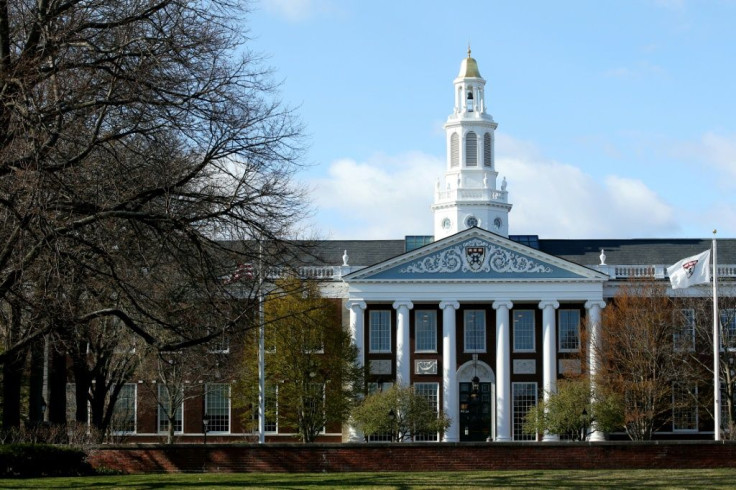Harvard, MIT Sue Trump Administration Over Foreign Student Ban, Call It Cruel, Will Create Chaos

KEY POINTS
- Immigration and Customs Enforcement issued the rule Monday as schools were finalizing plans for the fall that limited on-campus residence and activities
- Harvard accused the government of trying to force universities to conduct in-person classes despite the continued threat of coronavirus
- MIT President L. Rafael Reif called the ban "cruel"
At least two major U.S. universities are pushing back against an administration order barring foreign students if all their coursework is online, calling it a means of pressuring schools to open classrooms despite the continuing threat from the coronavirus pandemic.
Harvard and MIT announced Wednesday they filed a lawsuit against the administration just one day after a White House summit was called to push schools into reopening. On Monday, Immigration and Customs Enforcement issued an order that would ban foreign students whose classes will be delivered solely online.
In a letter to staff, faculty and students, MIT President L. Rafael Reif said the announcement disrupts the lives of international students and jeopardizes their studies without offering “the most basic answers about how its policy will be interpreted or implemented. And the guidance comes after many U.S. colleges and universities either released or are readying their final decisions for the fall – decisions designed to advance their educational mission and protect the health and safety of their communities.”
“By all appearances, ICE’s decision reflects an effort by the federal government to force universities to reopen in-person classes, which would require housing students in densely packed residential halls, notwithstanding the universities’ judgment that it is neither safe nor educationally advisable to do so, and to force such a reopening when neither the students nor the universities have sufficient time to react to or address the additional risks to the health and safety of their communities,” Harvard said in a press release. “The effect -- and perhaps even the goal -- is to create as much chaos for universities and international students as possible.”
The universities are seeking a court order to prevent the federal government from enforcing the ban.
Foreign students make up 5.5% of college and university students, and are a major source of revenue for higher education, about 26.2% in 2018 worth nearly $9 billion.
Harvard announced Monday all of its classes would be available online and only 40% of students would be allowed on campus, with priority given to freshmen in the fall semester and seniors in the spring. MIT said Tuesday it would allow a fraction of its undergraduates on campus in the fall, with priority given to seniors along with those “who cannot reasonably study elsewhere.” The population will be determined by how many students can be housed in private rooms.
Harvard normally serves more than 6,000 graduate students and more than 13,000 undergraduates; MIT serves nearly 7,000 graduate students and 4,530 undergrads.
“These students are being told to transfer to other institutions offering in-person instruction or leave the country, even though this late in the summer, it is highly unlikely students can apply for let alone successfully obtain such transfers,” Harvard said in the press release. “Many of these students do not have the means to safely travel outside of the country and face substantial barriers to online learning as a result of unavailable or unreliable internet connections, time zone variations, and other obstacles.”
© Copyright IBTimes 2025. All rights reserved.






















